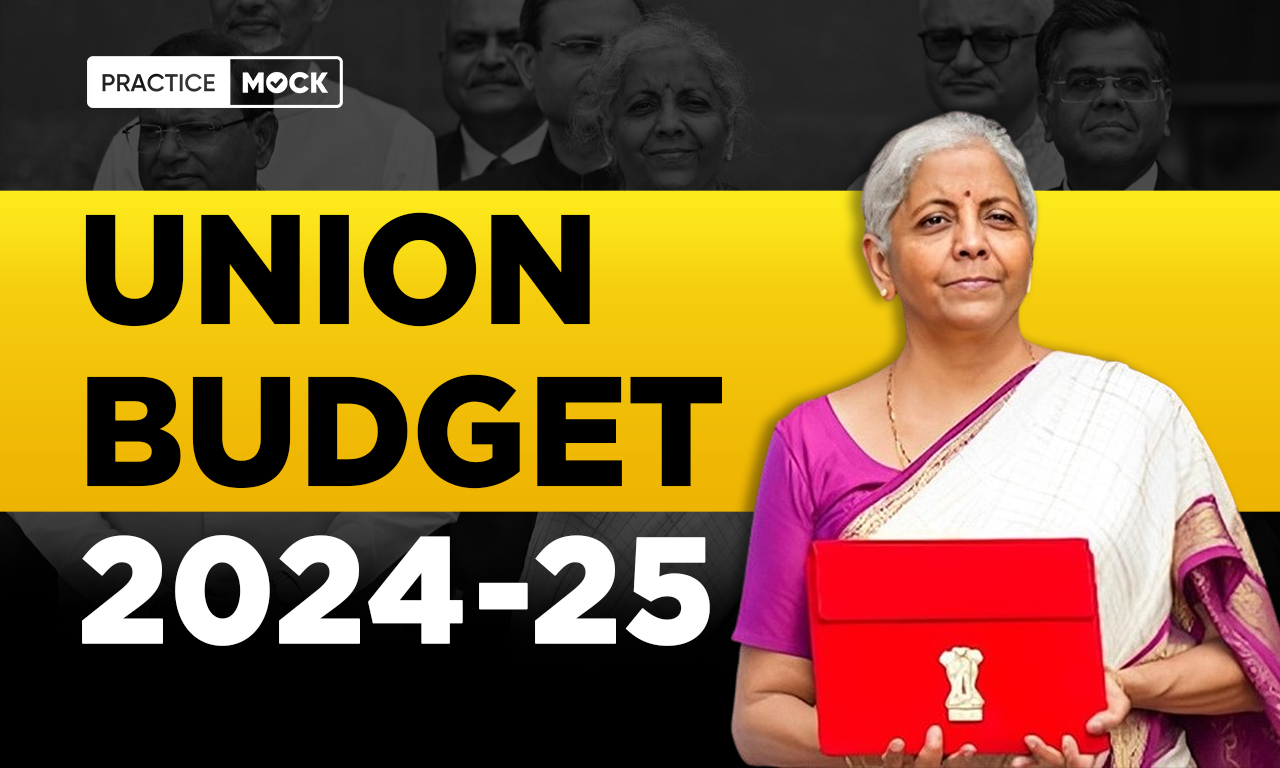Current Affairs
Daily Current Affairs- November 15, 2023


Rajnath Singh to attend 10th ADMM Plus in Indonesia
- Defence Minister’s visit: Rajnath Singh will participate in the 10th ASEAN Defence Ministers’ Meeting-Plus (ADMM Plus) in Jakarta, Indonesia, from November 16th to 17th. He will also have bilateral meetings with other Defence Ministers.
- Security issues and cooperation: Singh will address the forum on the first day of the meeting, focusing on regional and international security issues. He will also highlight the importance of the ADMM Plus as a platform for dialogue and collaboration among the ASEAN and Plus countries.
- ADMM Plus background: The ADMM Plus is the highest defence consultative and cooperative mechanism within ASEAN. It was established in 2010 and comprises 10 ASEAN members and eight Plus countries (Australia, China, India, Japan, New Zealand, Russia, South Korea, and the United States). Indonesia is the chair of the ADMM Plus this year.
India to Auction 20 Critical Mineral Blocks for Green Energy Transition
- India’s energy transition goals: The government is set to invite bids for 20 critical mineral blocks, including lithium and graphite, within the next two weeks. These minerals are essential for energy storage and green energy sector.
- Discovery of lithium reserves: India identified its first lithium deposits in Jammu and Kashmir in February, estimating reserves at 5.9 million tonnes. The mining rules were modified in July to allow private miners to explore these critical minerals.
- Auction process and royalty rates: The Union cabinet has approved royalty rates for the critical minerals, setting them at 3% for lithium, 3% for niobium, and 1% for rare earth elements. The auction will include minerals crucial for electric vehicles and batteries.
- Global collaborations and talks: India has been engaging in talks with key players in the global market, such as Chile, Bolivia, and Argentina, to tap into their lithium resources. India is also exploring downstream tie-ups with Bolivia for EV battery-making and processing setups.
- Strategic initiatives by government-controlled enterprises: Prominent state-owned enterprises, such as Coal India Ltd. and NTPC Ltd., are gearing up to venture into the mining sector. The formation of Khanij Bidesh India Ltd. in 2019, a joint venture involving three government-owned companies, highlights India’s commitment to securing critical mineral assets globally.
- Import statistics and economic impact: India imported lithium worth Rs 23,171 crore in FY23, a significant increase from Rs 13,673.15 crore in FY22. The nation’s reliance on global sources for lithium-ion components underscores the need for self-sufficiency in manufacturing electric accumulators and separators.
PM Modi to visit birthplace of Bhagwan Birsa Munda and launch various welfare schemes
- Historic visit: PM Modi will be the first Prime Minister to visit Ulihatu Village, the birthplace of Bhagwan Birsa Munda, a tribal freedom fighter and folk hero. He will pay homage at the Bhagwan Birsa Munda Memorial Park cum Freedom Fighter Museum in Ranchi on November 15th.
- Viksit Bharat Sankalp Yatra: PM Modi will start the ‘Viksit Bharat Sankalp Yatra’, a nationwide campaign to create awareness and deliver the benefits of various welfare schemes directly to the people. The Yatra will focus on providing essential services such as sanitation, electricity, housing, and more to the targeted beneficiaries. The Yatra will initially cover districts with significant tribal populations and gradually extend to all districts by January 25th, 2024.
- PM PVTG Development Mission: PM Modi will launch the ‘Pradhan Mantri Particularly Vulnerable Tribal Groups (PM PVTG) Development Mission’, a mission to uplift 75 PVTGs residing in 220 districts across 18 states and UTs. The mission will provide basic facilities like road and telecom connectivity, electricity, housing, clean water, sanitation, education, healthcare, and sustainable livelihood opportunities. The mission has a budget of approximately Rs 24,000 crores.
- PM-KISAN and other projects: PM Modi will release the 15th instalment of about Rs. 18,000 crores under the Pradhan Mantri Kisan Samman Nidhi (PM-KISAN), a direct benefits transfer scheme for farmers. He will also inaugurate, dedicate to the nation, and lay the foundation stone for projects totaling around Rs. 7200 crores across various sectors, including rail, road, education, coal, petroleum, and natural gas. Notably, he will dedicate the achievement of 100% Railway Electrification in Jharkhand State to the nation.
Sahara Group founder Subrata Roy passes away at 75
- Subrata Roy’s life and achievements: He was the founder and chairman of Sahara India Pariwar, a prominent entrepreneurial venture that started with a capital of ₹2,000 in 1978. He moved the headquarters of Sahara Group to Lucknow in the 1990s and expanded the business into various sectors.
- Sahara’s legal troubles: Sahara faced allegations of illegal fund-raising and money laundering by SEBI and the Himachal Pradesh High Court. The Supreme Court declared an investor scheme by Sahara illegal in 2012 and ordered the refund of depositors. Subrata Roy was arrested in 2014 and spent over two years in jail.
- Subrata Roy’s death and legacy:. He had been suffering from metastatic malignancy, hypertension, and diabetes. Sahara Group expressed its commitment to uphold his vision and honor his memory.
PMKisan Bhai scheme to empower farmers by breaking traders’ monopoly
- New initiative by Indian government: The Ministry of Agriculture is planning to launch the PMKisan Bhai scheme by the end of December to support small and marginal farmers who face challenges in storing and selling their produce.
- Warehousing Rental Subsidy and Prompt Repayment Incentive: The scheme has two components – WRS and PRI. WRS provides farmers with a subsidy of ₹4 per quintal per month for storing their crops in scientifically built warehouses for up to three months. PRI reduces the interest rate on pledge finance availed against eNegotiable Warehouse Receipts (eNWRs) traded via the eNational Agriculture Market (eNAM) platform or other registered e-trading platforms.
- Pilot phase in seven states: The scheme will undergo a pilot phase in Andhra Pradesh, Assam, Madhya Pradesh, Maharashtra, Rajasthan, Tamil Nadu, and Uttar Pradesh. The pilot phase will cost ₹170 crore over three years and will test the feasibility and effectiveness of the scheme in diverse agricultural landscapes.
- Potential benefits and challenges: The scheme aims to give farmers more autonomy and control over their agricultural produce by breaking the monopoly of traders in determining crop prices. However, the scheme also faces challenges such as the influence of buyers on prices and the availability of quality warehousing facilities.
Jio Satellite Communications and OneWeb get ISP licenses to provide satellite-based internet services in India
- Satellite-based internet services: Jio Satellite Communications and OneWeb have obtained Internet Service Provider (ISP) licenses from the Department of Telecom (DoT) to provide internet services using satellite capabilities and VSAT technology. This will enable them to connect remote and underserved regions in India.
- Spectrum access pending: The ISP licenses are a significant step forward, but the companies still need to secure spectrum access for delivering services to consumer terminals. The spectrum is essential for ensuring efficient and reliable satellite communication.
- OneWeb’s vision: OneWeb, backed by the Bharti Group, has its own constellation of satellites in both GEO and LEO orbits. This allows for optimized coverage and improved latency. OneWeb’s services are set to connect every corner of the country, with implementation expected to commence next month.
- Jio’s partnership: Jio Satellite Communications has partnered with Luxembourg SES Satellites, using a combination of GEO and MEO satellites. This enhances the company’s ability to provide comprehensive coverage and high-speed broadband services. Jio demonstrated its satellite-based giga-fiber services at the India Mobile Congress.
PM Modi to launch PM-PVTG Mission and Viksit Bharat Sankalp Yatra on Janjatiya Gaurav Diwas
- PM-PVTG Mission: A scheme to provide comprehensive development to 28 lakh people belonging to Particularly Vulnerable Tribal Groups (PVTGs) in 18 States and Union Territories. Focus areas include power, water, road connectivity, housing, education, and healthcare. Budgeted at ₹24,000 crore over three years.
- Viksit Bharat Sankalp Yatra: A nationwide campaign to achieve saturation of flagship government schemes across the country. To commence from tribal-dominated districts and cover all districts by January 2024.
- PM Modi’s visit to Jharkhand: To launch the above initiatives from Khunti district, after visiting Ulihatu village, the birthplace of Birsa Munda. To become the first sitting Prime Minister to visit this village. To inaugurate and lay the foundation stone for projects worth ₹7,200 crore in various sectors. To release the 15th installment of the PM-KISAN scheme.
- Government’s efforts and challenges: To ensure the success of the PM-PVTG Mission, government officials have been visiting PVTG villages and identifying their needs. To address the concerns raised by a House Panel on the welfare of Scheduled Castes and Scheduled Tribes regarding the budgeting and the lack of current data on the PVTG population.
AAPA sets 5% SAF target by 2030 for member airlines
- AAPA’s goal: The Association of Asia-Pacific Airlines (AAPA) aims to use 5% sustainable aviation fuel (SAF) by 2030 to reduce carbon emissions from the aviation industry. The AAPA has 14 member airlines, including Air India, which joined recently.
- SAF challenges: The aviation industry faces limited SAF availability and high cost compared to fossil jet fuel. The AAPA calls for a comprehensive approach that supports SAF production from various feedstocks and pathways, and provides subsidies and incentives for SAF adoption.
- SAF mandates: Some regions, such as the EU, have implemented mandates for SAF usage, but the AAPA stresses the need for ensuring adequate supply before enforcing such mandates. India has also announced plans to mandate 1% SAF use by 2025, 2% by 2026, and 5% by 2030, but may face supply-side challenges.
- SAF initiatives: Some member airlines, such as Cathay Pacific, have set higher SAF targets, with a commitment to 10% SAF usage by 2030. India has also witnessed SAF demonstration flights by Spice Jet and Air Asia India, which blended up to 1% SAF with conventional jet fuel. These initiatives contribute to the global efforts to achieve carbon-neutral growth and net-zero emissions by 2050.
India and OPEC hold 6th High-Level Energy Dialogue
- The meeting took place on 9 November 2023 in Vienna, Austria, co-chaired by HE Haitham Al Ghais, Secretary General of OPEC, and HE Hardeep Singh Puri, Minister of Petroleum and Natural Gas and Minister of Housing and Urban Affairs of India.
- The meeting discussed issues related to oil and energy markets, focusing on availability, affordability, and sustainability of energy resources.
- The meeting recognized India’s role as a major developing economy and energy consumer, accounting for over 28% of incremental global energy demand between 2022-2045.
- The meeting explored further areas for collaboration between India and OPEC, especially in the context of India’s G20 Presidency and its leadership in addressing global challenges.
- The meeting agreed to hold the next High-Level Meeting in India in 2024.
India signs $400 million loan agreement with ADB for urban infrastructure development
- Policy-based loan agreement: India and ADB have signed a $400 million loan agreement to support the development of high-quality urban infrastructure in the country. The loan is part of a $750 million multi-tranche financing facility that aims to improve service delivery and governance systems in the urban sector.
- National-level policies and guidelines: The first sub-programme of the facility, approved in 2021 with a financing of $350 million, established a framework for enhancing urban services and addressing critical aspects of urban planning and service delivery. The programme aligns with the government’s urban sector strategy and emphasizes reforms that make cities livable and centers of economic growth.
- State and ULB-level actions: The second sub-programme, supported by the $400 million loan agreement, focuses on investment planning and reform actions at the state and urban local body (ULB) levels. The sub-programme supports the implementation of the national flagship programme, Atal Mission for Rejuvenation and Urban Transformation (AMRUT) 2.0, which aims to achieve universal access to water supply and sanitation.
- Sustainable and resilient urban development: The sub-programme also promotes urban water security, modernization of building bylaws, land pooling, urban agglomeration, and comprehensive urban mobility planning. These measures aim to transform cities into well-planned centers of economic growth, integrating climate and disaster resilience, nature-based solutions, and improvements to the urban environment. The sub-programme also incentivizes cities to become financially sustainable by enhancing their creditworthiness and exploring innovative financing options.
Read Current Affairs of this Month Here!
Recent Posts
RRB NTPC Salary 2025: In-Hand, Job Profile, Career Growth
RRB NTPC Salary 2025 details provided in this blog. Candidates can check the In-Hand salary,…
35 mins ago
All One Word Substitutions Asked In SSC CGL PDF, Download for Free
In this blog, we have provided All One Word Substitutions Asked In SSC CGL Exams…
4 hours ago
Expected Puzzle Questions for RRB PO 2025, Check Tips to Solve Them Easily
In this article we are providing the Expected Puzzle Questions for RRB PO 2025. Candidates…
6 hours ago
IDBI JAM 2025 Preparation Resources, Attempt Topic Wise Tests & Mock Tests
In this article we are providing the IDBI JAM 2025 Free preparation resources, Candidates can…
7 hours ago
IBPS PO 2025 Notification in August, PO Exam Date Out, Check All Detailes
The IBPS PO 2025 Notification is expected to be released in August 2025. The Probationary…
8 hours ago
Why Regular Mock Tests Are Important for IBPS PO Exam 2025 Success
Want to crack IBPS PO 2025? Mock tests help you analyze progress, improve strategy, and…
10 hours ago


